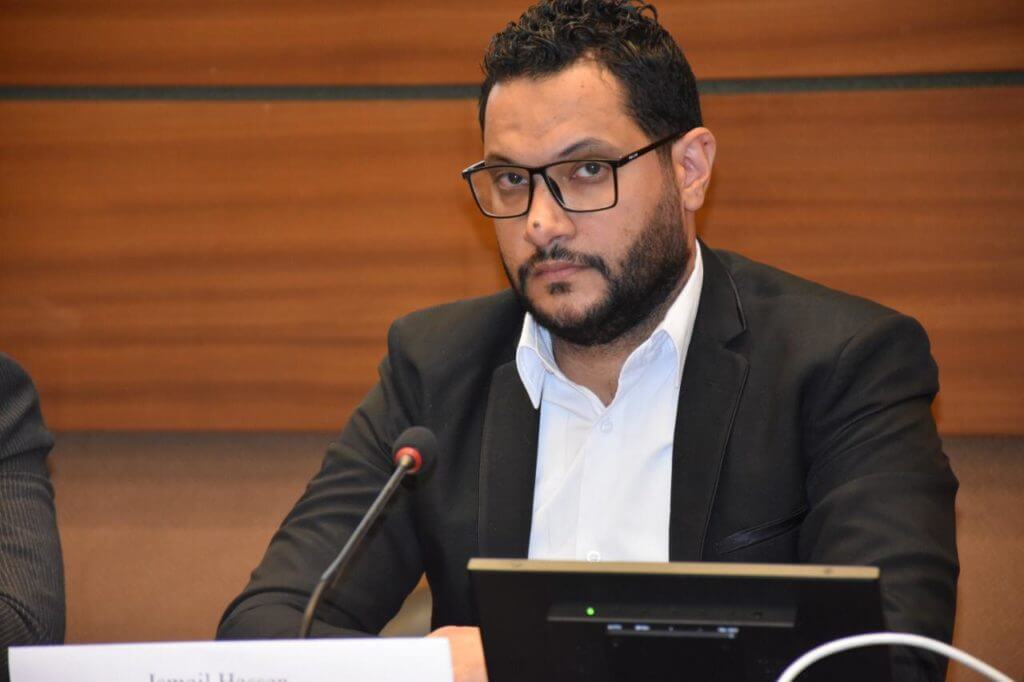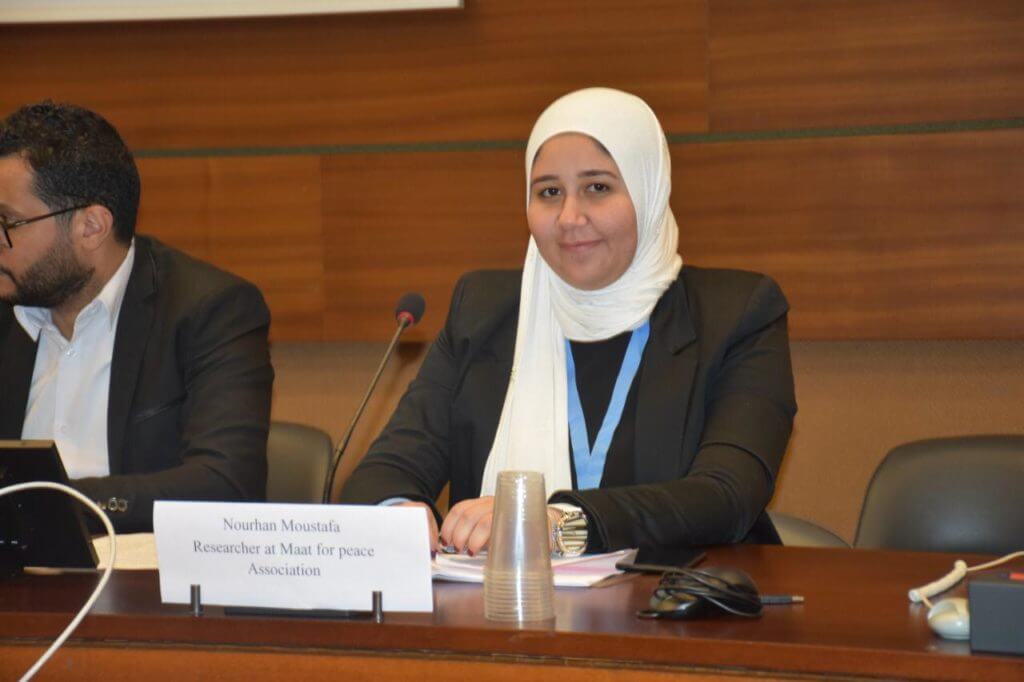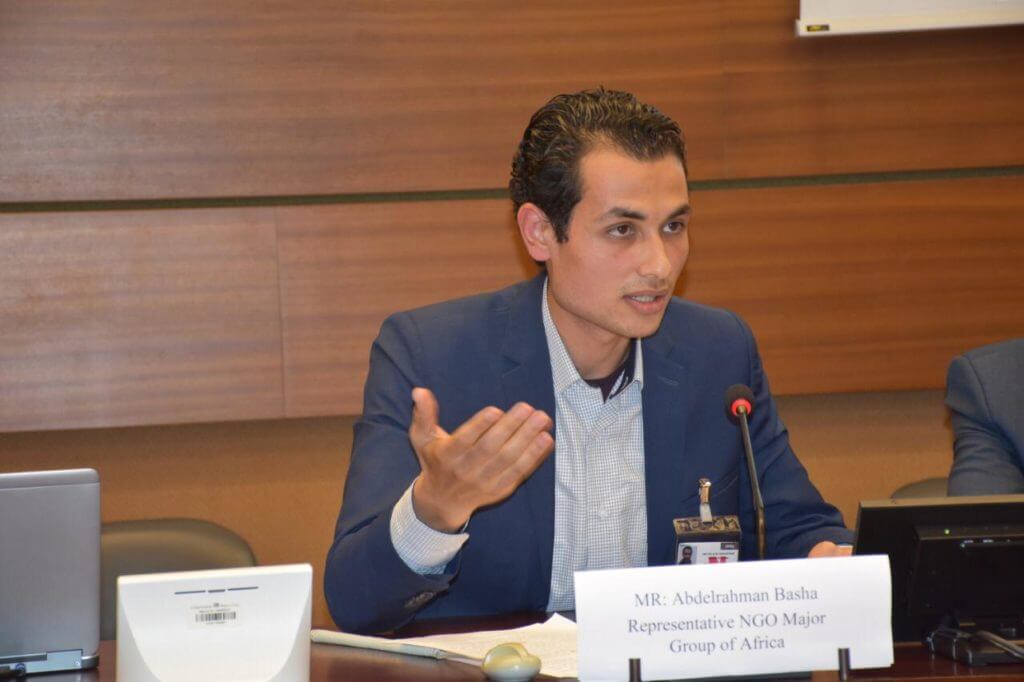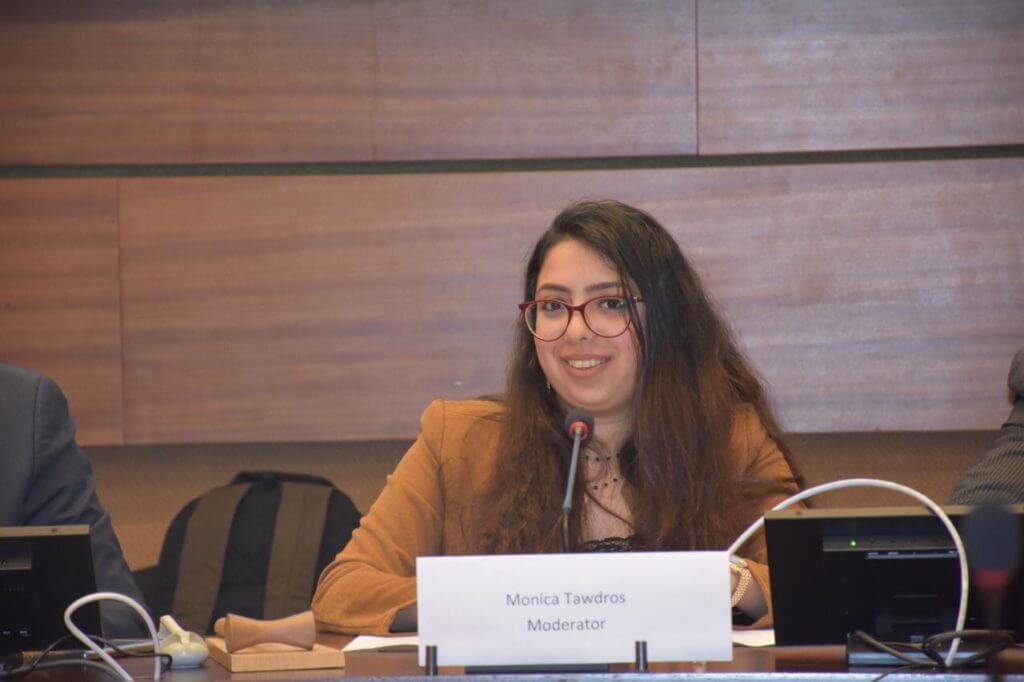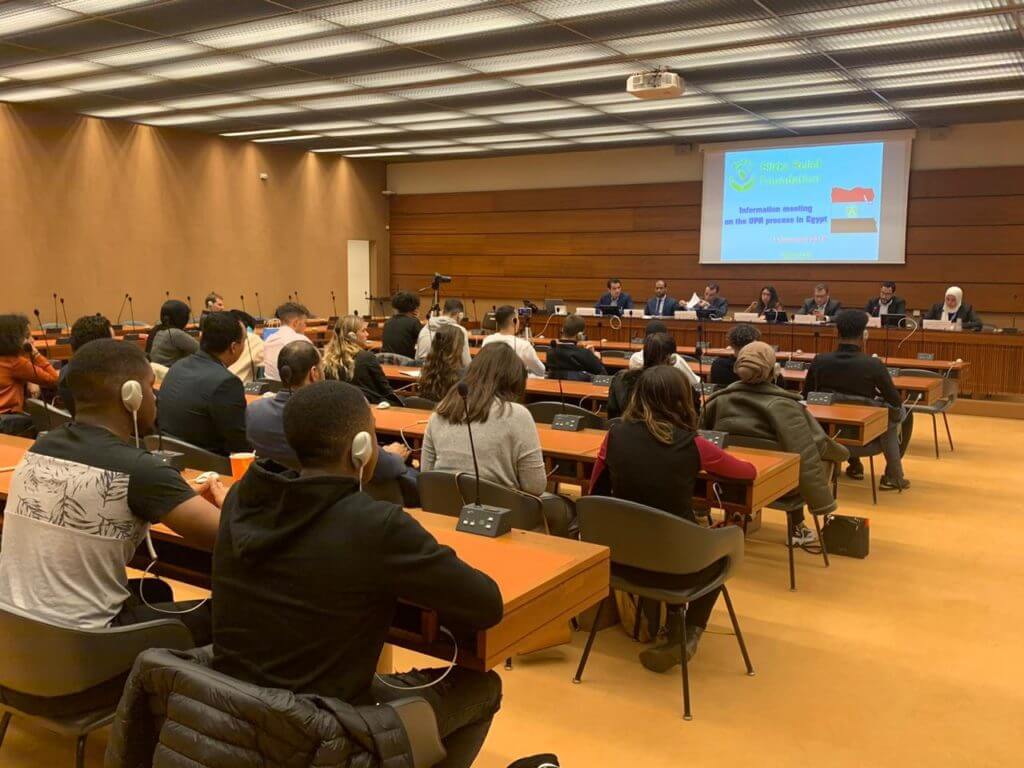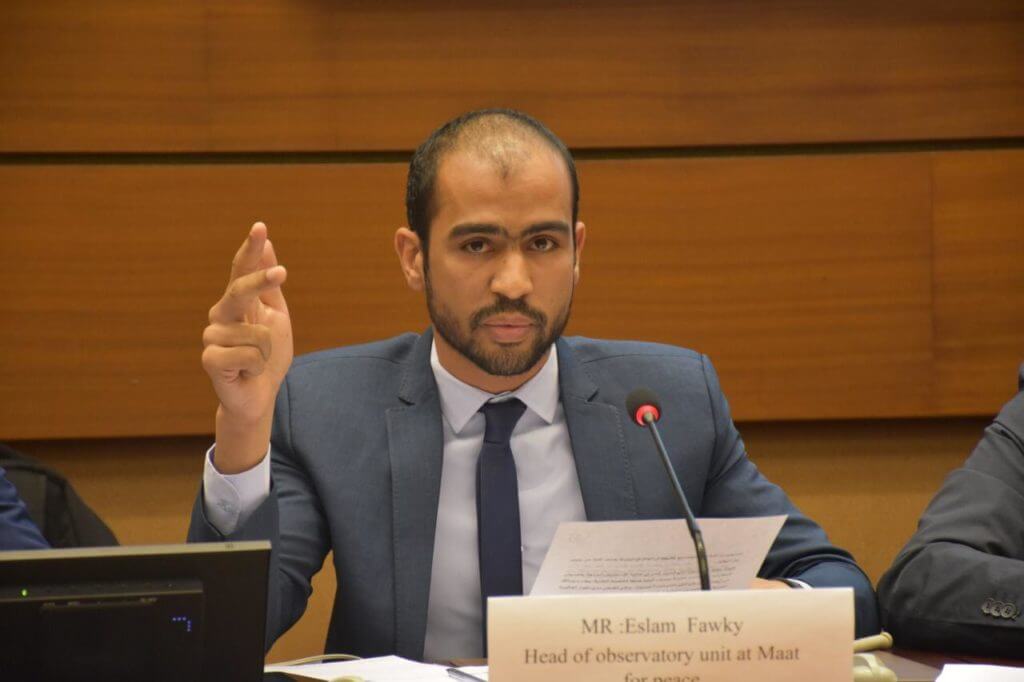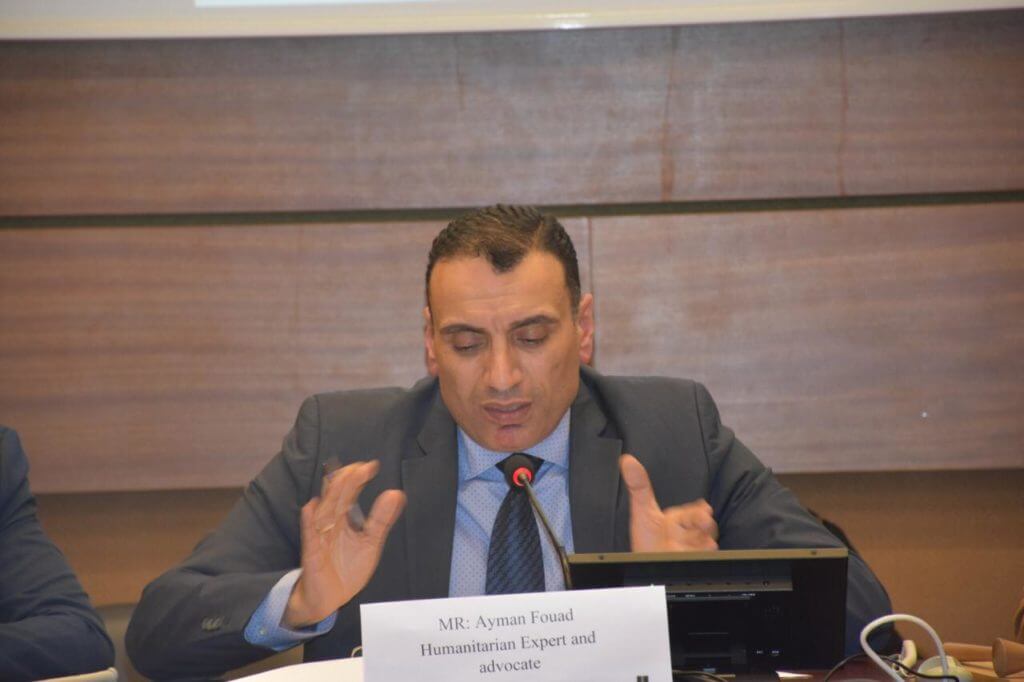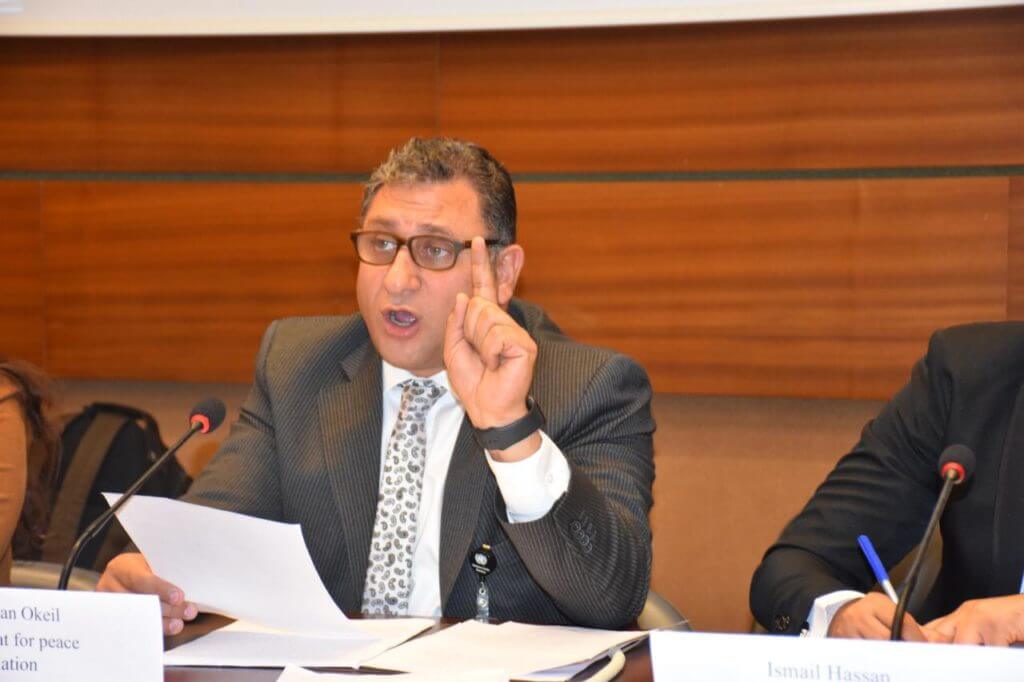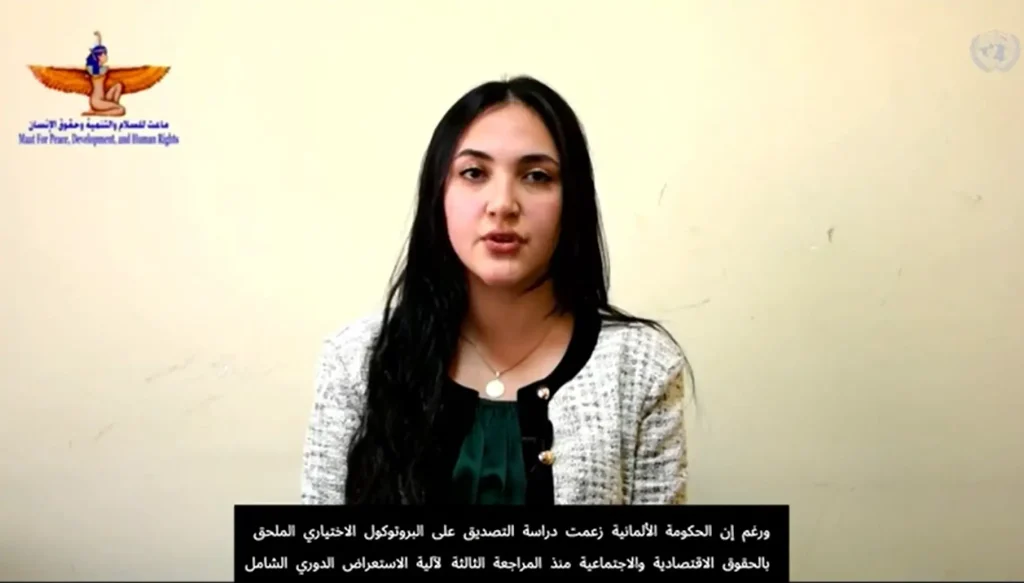In conjunction with the Egyptian government's review of its report at the Human Rights Council: Maat discusses the file of civil and political rights in Egypt
Maat Foundation for Peace, Development and Human Rights, in partnership with the Elzka Relief Organization, held a symposium today, Wednesday, November 13, 2019, on civil and political rights in Egypt, on the sidelines of the 34th session of the Universal Periodic Review. In conjunction with Egypt's review of its report before the Human Rights Council in Geneva.
The seminar was attended by Professor Ayman Aqil, President of Maat Foundation, and Counselor Ayman Fouad, Sherif Abdel-Hamid, Director of the Research and Studies Unit at Maat Foundation, Islam Fawqi, Director of the Policy Analysis Unit, Abdel-Rahman Pasha, representative of the largest NGO group in Africa, and researcher Nourhan Mustafa in the International Alliance for Peace and Development. The seminar was moderated by Monica Mina, Executive Director of the International Consulting Group.
During the symposium, Aqil indicated that Egypt had approved many laws regulating private work, which imposed many restrictions on the work of civil society organizations, until we reached Law No. 149 of 2019, which is the best of them ever. Aqeel emphasized that the most prominent characteristic of this law is the abolition of penalties that negatively affect freedoms, as well as the establishment of organizations based on dangers and considering missing appointments without the government’s response to funding.
With regard to the right to demonstrate, Aqeel praised the amendment introduced to the “Demonstration Law” after the Constitutional Court’s decision that Article 10 of the Demonstration Law was unconstitutional, which allowed the Minister of Interior to prevent demonstrations, postpone them or move them to another place, and the head of Maat Foundation said that the new amendment The right of security to prevent demonstrations has been abolished, granting this right to the judge of temporary matters and after submitting an official memorandum from the Minister of the Interior or the Director of Security, which is what happens in all democratic countries.
For his part, Counselor Ayman Fouad said that the Egyptian constitution and laws banned all forms of torture, intimidation, coercion, and physical or moral harm, considering it a crime that does not fall under the statute of limitations. Dozens of security men have been referred for trial in recent years, and that the cases of torture are individual cases, not two of his elbows.
Sherif Abdel Hamid also spoke about freedom of opinion and expression and said that during the previous review, the Egyptian government received 11 recommendations related to freedom of opinion and expression. Abdel Hamid stressed that the Egyptian constitution guaranteed all forms of freedom of opinion, expression and creativity of all kinds, freedom of the press and freedom of the media, and the prohibition of imposing censorship on newspapers and the means Media, and any cases of closing newspapers or websites for violating the rules and laws and by a decision of the competent authority
While Islam Fawqi emphasized that political participation and periodic elections are one of the most important foundations of democracy, and a good indicator of the democratic path in any country. Perhaps elections in Egypt are the most difficult equation in indicators of political participation, as elections are the fruit of the work of any democratic system. Fouki pointed out that Egypt has witnessed a change and fluctuation in the size and nature of political participation in Egypt, especially in the parliamentary elections, which fell by almost half. Fouki also praised the role of the Independent National Elections Commission in administering and managing all elections and referendums independently, which contributes to enhancing the integrity and impartiality of the elections.
Abdel-Rahman Pasha also explained that party life in Egypt has been in continuous decline during the past four years, due to the parties 'inability to mobilize or prepare party cadres, and the parties' inclusion of candidates reliable in their success regardless of their agreement with the party's ideology. He recommended the necessity of working to revitalize partisan life in the coming period, and issuing laws that work to dissolve parties that do not obtain parliamentary seats during two consecutive terms, which is the case in all parts of the world, which pushes the parties to have a permanent presence on the ground.
For her part, Nourhan Mustafa said that the Egyptian government has worked on the political and economic empowerment of women in recent years, as the percentage of women’s representation in the House of Representatives has risen to 15% by 90 seats in the current session since 2016, and there are also 8 women ministers in the current government, in addition to that of a woman. Governor position for the first time.
At the conclusion of the symposium, Monica Mina spoke about the rights of minorities in Egypt and said that the law on building and restoring churches and their annexes stipulated the formation of a committee to reconcile the conditions of churches within a period of time, which is what happened when the conditions of many churches were reconciled.
